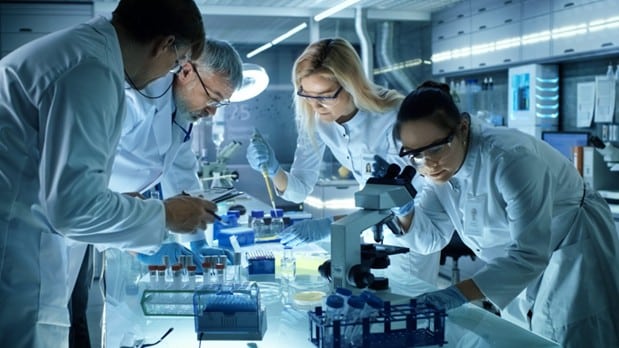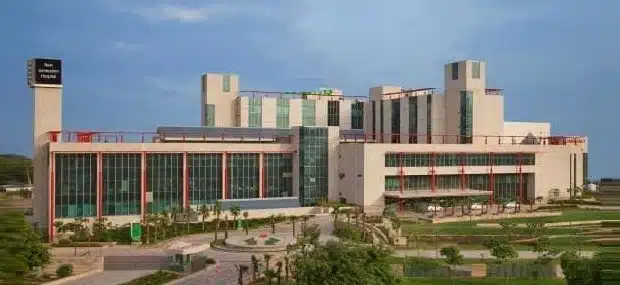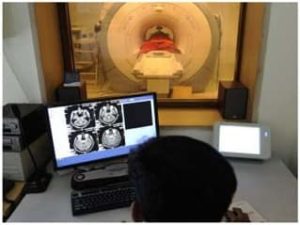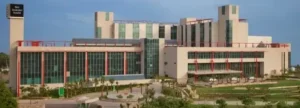Pioneering Research on AHSCT/HSCT for Multiple Sclerosis and Autoimmune Diseases

Compilation of Published Research on HSCT in Global Medical Journals
Autologous Hematopoietic Stem Cell Transplantation (AHSCT), commonly referred to as HSCT, is rapidly reshaping the conversation around treatment for Multiple Sclerosis (MS) and other stubborn autoimmune conditions. Unlike conventional therapies that only manage symptoms or slow progression, HSCT takes a bold step—it essentially “resets” the immune system. For patients who have exhausted traditional options, this offers something rare: genuine hope.
In the last decade, clinical trials from leading research canters across the globe have reported striking outcomes—fewer relapses, improved day-to-day function, and, for some, years of sustained remission.
We have compiled below a curated list of key research papers and clinical trials based on recent searches from PubMed and ClinicalTrials.gov. This is not an exhaustive list (as there are hundreds of publications), but it focuses on prominent, recent (up to 2025), and influential studies. For full access, many PubMed links lead to abstracts; full texts may require institutional access or purchase.
Broad Conclusions from Research and Clinical Trials on HSCT/AHSCT for Multiple Sclerosis and other Auto immune conditions.
Hematopoietic Stem Cell Transplantation (HSCT), particularly its autologous form (AHSCT), represents a high-intensity, immune-reprogramming therapy for multiple sclerosis (MS). In AHSCT, a patient’s own hematopoietic stem cells are harvested, followed by myeloablative or non-myeloablative chemotherapy (e.g., cyclophosphamide-based regimens) to deplete autoreactive immune cells, and then reinfusion of the stem cells to rebuild a tolerant immune system.
This “reset” aims to halt inflammatory activity in aggressive relapsing-remitting MS (RRMS), where disease-modifying therapies (DMTs) like ocrelizumab or natalizumab fail. Since the first MS AHSCT case in 1995, over 3,000 procedures have been performed globally, with accumulating evidence from meta-analyses, cohort studies, and randomized trials supporting its role as a one-time, potentially curative option for select patients.
Efficacy of HSCT proven : Halting Disease Activity and Improving Disability
AHSCT offers transformative potential for aggressive RRMS, with meta-analytic evidence of durable remissions outperforming DMTs, at the cost of manageable short-term risks. Long-term data affirm its role in immune reset, but progressive MS remains challenging. As of 2025, EBMT-endorsed protocols are expanding access, with ongoing trials addressing equity and optimization. Recent meta-analyses and reviews consistently demonstrate AHSCT’s superior efficacy over standard DMTs in highly active RRMS, with high rates of
Long-Term Outcomes: Durability and Quality of Life
Follow-up data (5–15 years) from registries like EBMT and ASTCT highlight durable remissions, though ~20–30% experience late relapses or progression.
Survival and Remission Rates:
- Progression-free survival: 80% at 10 years in early RRMS; drops to 50–60% in progressive subtypes.
- Danish cohort (2023, n=81 aggressive RRMS): 92% relapse-free at 5 years; EDSS stable/improved in 75%.
- UK experience (2025, n=364): 70% NEDA at 7 years; factors for better outcomes: age <35, disease duration <5 years, pre-AHSCT EDSS <4.
Younger patients with shorter disease duration and fewer prior DMTs fare best, with some achieving 15+ years of remission.
Safety and Risks: Balancing Intensity with Modern Protocols HSCT’s risks have declined with refined conditioning (e.g., low-dose cyclophosphamide + ATG) and supportive care, but it’s not risk-free. Treatment-related mortality (TRM) is now <1% in experienced centers. Risk Mitigation: Prior rituximab exposure protects against post-AHSCT inflammation. Neuropsychological reviews (2024) show cognitive stability/improvement in 80%, with minimal decline.
|
Title |
Publication Date |
Link |
Key Insights |
|
Autologous Hematopoietic Stem-Cell Transplantation in Multiple Sclerosis: 2022 Update on the European Society for Blood and Marrow Transplantation Clinical Practice Recommendations |
2022 |
Updates on safety improvements due to technical advances and patient selection in MS treatment. |
|
|
Autologous Hematopoietic Stem Cell Transplant in Multiple Sclerosis |
Feb 2021 |
Supports AHSCT as a viable option for relapsing MS per the National Multiple Sclerosis Society. | |
|
Autologous Hematopoietic Stem Cell Transplantation (AHSCT) in Multiple Sclerosis: An Updated Review of Current Literature and Future Directions |
Mar 2021 |
Positions AHSCT as a novel approach for DMT-resistant MS patients. |
|
|
Ongoing Randomized Clinical Trials on HSCT in Multiple Sclerosis: A Scoping Review |
2024 |
Reviews emerging AHSCT for highly active relapsing-remitting MS. |
|
|
Autologous Haematopoietic Stem Cell Transplantation for Multiple Sclerosis: A Cochrane Review |
Jun 2025 |
Comprehensive review since 1995, assessing long-term outcomes. |
|
|
Second Autologous Hematopoietic Stem Cell Transplantation in Multiple Sclerosis: A Case Report |
Jan 2024 |
Explores repeat AHSCT for immunosuppressive therapy in MS. |
|
|
Sustained Immunotolerance in Multiple Sclerosis after Stem Cell Transplantation |
Feb 2022 |
Discusses recalibration of pro-inflammatory pathways post-AHSCT. |
|
|
Comparative Effectiveness of Autologous Hematopoietic Stem Cell Transplant vs Disease-Modifying Therapy in Patients with Multiple Sclerosis |
Jul 2023 |
Compares AHSCT to standard therapies for highly active MS. |
|
|
Autologous Hematopoietic Stem Cell Transplantation to Treat Multiple Sclerosis: The Path to Widespread Adoption |
2023 |
Evidence for durable efficacy in relapsing MS. |
|
|
Autologous Haematopoietic Stem Cell Transplantation for Treatment of Multiple Sclerosis: A Cochrane Review (Update) |
Jan 2025 |
Focuses on relapsing MS with aggressive disease. |
Research Papers on AHSCT/HSCT for Other Autoimmune Diseases
These cover a range of conditions like systemic sclerosis, lupus, and Crohn’s disease, excluding MS.
|
Title |
Publication Date |
Link |
Key Insight |
|
Haematopoietic Stem Cell Transplantation for Autoimmune Diseases: Potential Risks and Benefits |
2017 |
Reviews immunological mechanisms and regimens for various autoimmune diseases. |
|
|
Autologous Haematopoiesis Stem Cell Transplantation (AHSCT) for Refractory Autoimmune Diseases in Children and Adolescents: A Single-Center Experience |
Jul 2024 |
Demonstrates safety and efficacy in pediatric refractory cases. |
|
|
Hematopoietic Stem Cell Transplantation and Cellular Therapies for Autoimmune Diseases: Overview and Future Considerations |
May 2022 |
Discusses EBMT perspectives on HSCT for autoimmune conditions. |
|
|
Infectious Complications After Autologous Hematopoietic Stem Cell Transplantation in Autoimmune Diseases: A Systematic Review |
Mar 2025 |
Analyzes infection risks post-AHSCT in autoimmune patients. |
|
|
Autoimmune Diseases After Allogeneic Stem Cell Transplantation: A Clinician’s Guide and Future Outlook |
May 2022 |
Guide on post-HSCT autoimmune complications. |
|
|
T-Cell Recovery After Autologous Hematopoietic Stem Cell Transplantation in Autoimmune Diseases |
2025 |
Covers over 3,000 AHSCT procedures for severe autoimmune diseases. |
|
|
Autologous Hematopoietic Stem Cell Transplantation with Immunosuppressive Treatment in Autoimmune Diseases: A Retrospective Survey |
2020 |
Retrospective data on refractory autoimmune patients. |
|
|
Haematopoietic Stem Cell Transplantation for Severe Autoimmune Diseases in Children: A Review of Current Literature, Registry Activity and Future Directions |
2023 |
Focuses on pediatric applications and EBMT registry data. |
|
|
Hematopoietic Stem Cell Therapy for Autoimmune Diseases: Clinical Experience and Mechanisms |
Jun 2018 |
Explores clinical outcomes and underlying mechanisms. |
|
|
A Position Statement from the EBMT Autoimmune Diseases Working Party on Haematopoietic Stem Cell Transplantation in Autoimmune Diseases |
2019 |
Weighs risks vs. benefits compared to standard treatments. |
HSCT (Hematopoietic Stem Cell Transplantation) for Multiple Sclerosis is now available at JCI-USA accredited World Class Hospital in India at most affordable cost.

HSCT attempts to “reboot” the faulty immune system, which is responsible for damaging the brain and spinal cord in MS. At present the total cost of HSCT at major centres like Mexico and Russia cost more than 100,000 US Dollars including travel and stay. At world class HSCT Hospital India HSCT costs about 30,000 US Dollars all inclusive. Please click this link to know more about world’s most affordable HSCT treatment Please click this link to know more about world’s most affordable HSCT treatment
Why you should choose HSCT Hospital India for HSCT ?
 HSCT Hospital India is one of the finest private hospitals in India and Accredited by JCIUSA. Most Affordable, 30,000 US $ HSCT package includes complete treatment cost for 30 days inhospital stay in a deluxe private room, Doctors Fee, Tests and Consultations, Medicines, Consumables, Neuro-Physiotherapy and also Food and Laundry for both the patient and the attendant, Airport Transfers etc. Large number of MS patients from Europe, America and Australia already treated successfully. Click here to know more
HSCT Hospital India is one of the finest private hospitals in India and Accredited by JCIUSA. Most Affordable, 30,000 US $ HSCT package includes complete treatment cost for 30 days inhospital stay in a deluxe private room, Doctors Fee, Tests and Consultations, Medicines, Consumables, Neuro-Physiotherapy and also Food and Laundry for both the patient and the attendant, Airport Transfers etc. Large number of MS patients from Europe, America and Australia already treated successfully. Click here to know more Complete 30 day HSCT done in hospital. Private deluxe rooms are very well served for patient and attendant’s comfort and equipped with HEPA Filter with Triple Level Air Filtration. No outside hospital stay avoids risk of infection, 24 x 7 nursing care and best medical attention. Advanced HSCT for MS protocol used does not require any further chemo/ treatment after leaving the hospital. Click here to get complete details
Complete 30 day HSCT done in hospital. Private deluxe rooms are very well served for patient and attendant’s comfort and equipped with HEPA Filter with Triple Level Air Filtration. No outside hospital stay avoids risk of infection, 24 x 7 nursing care and best medical attention. Advanced HSCT for MS protocol used does not require any further chemo/ treatment after leaving the hospital. Click here to get complete details International and Globally Renowned Accreditations – HSCT Hospital India is accredited by the Joint Commission International, USA, National Accreditation Board for Hospitals and Healthcare Providers (NABH), and National Accreditation Board for Laboratories (NABL) for processes and high-quality patient care.
International and Globally Renowned Accreditations – HSCT Hospital India is accredited by the Joint Commission International, USA, National Accreditation Board for Hospitals and Healthcare Providers (NABH), and National Accreditation Board for Laboratories (NABL) for processes and high-quality patient care. Large number of MS patients from Europe, America and Australia have already been treated successfully at HSCT Hospital India. Click here to watch patient testimonial videos
Large number of MS patients from Europe, America and Australia have already been treated successfully at HSCT Hospital India. Click here to watch patient testimonial videos




